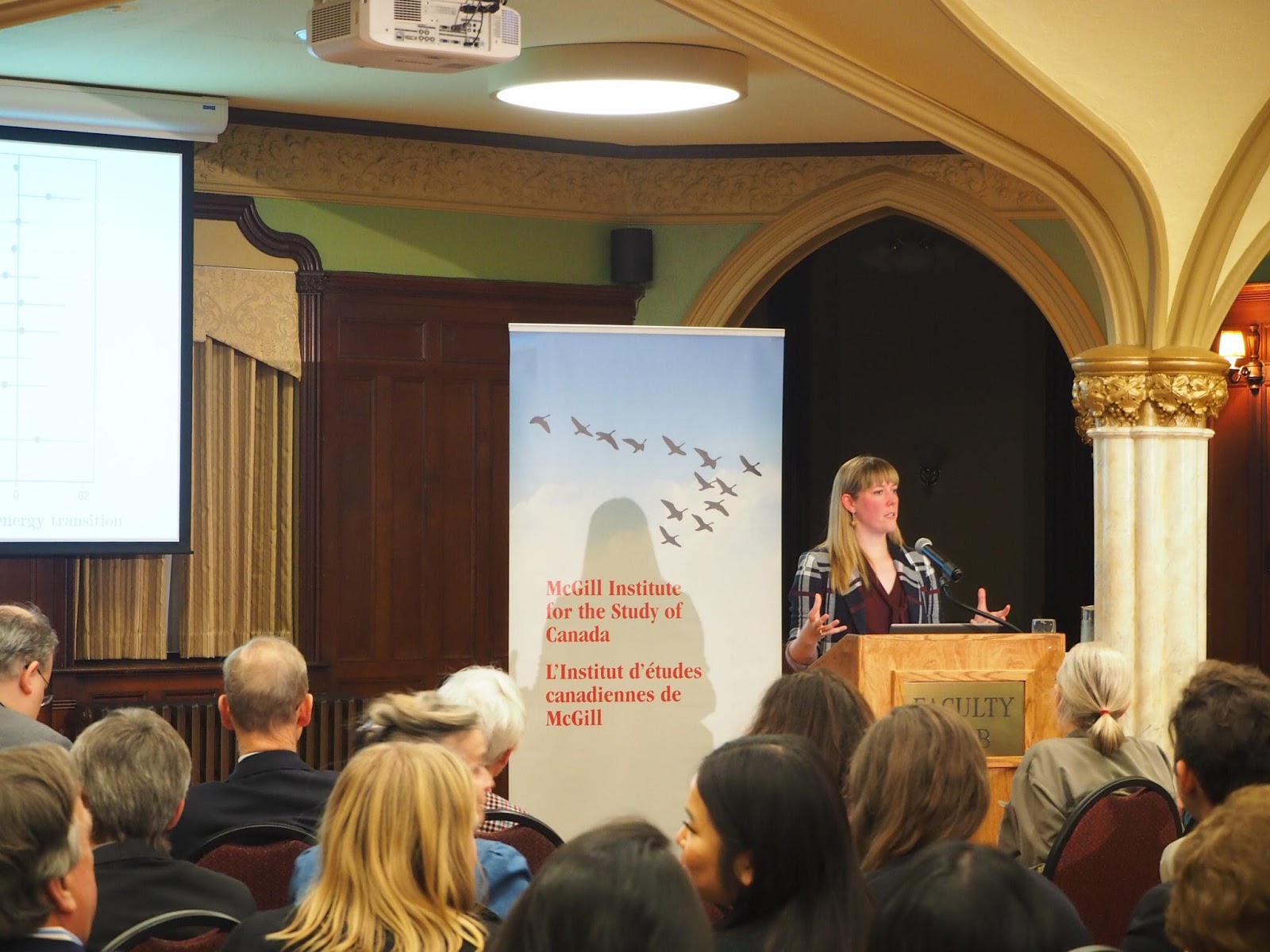The 2019 Canadian federal election might have highlighted a political divide between Alberta and the rest of Canada on issues like the environment and energy; however, as visiting Eakin Fellow Melanee Thomas noted in a lecture at the Faculty Club on Nov. 21, Albertans are not that different from other Canadians. Her talk, “Balancing ‘Competing’ Interests: How Albertans Think About Energy Transition” was organized by the McGill Institute for the Study of Canada (MISC).
Thomas’ research shows that 59 per cent of Albertans believe that the province should move away from oil and gas and 86 per cent believe in a shift towards renewable energy.
Thomas, who was born and raised in Lethbridge, Alberta, is a professor at the University of Calgary. She drew on her personal experiences and her perspective as a political scientist to sketch a nuanced portrait of political attitudes in the province. She presented the results of a study her research group completed after the federal election about Albertans’ views on climate change and oil and gas, which focussed particularly on demographics, political attitude, and the effects of colonialism. Her research yielded surprising results that demonstrate that, while Albertans believe in human-caused climate change, fewer are worried by its effects.
“It’s interesting that the association between believing that climate change is anthropogenic and being worried about it is not […] a guaranteed one,” Thomas said. “What’s more interesting is that for people who believe that people are causing [climate change], [there are many] who are not worried at all. So, for me, belief is maybe not necessarily the most important thing, it’s the ‘so what?’.”
Thomas highlighted the complex and often counter-intuitive attitudes held by different socio-demographic groups of Albertans. Socially-conservative Albertans, for example, tend to support parties that endorse environmental protection initiatives.
“In parts of rural Alberta the Green Party does reasonably well, because [they are] about [environmental] conservation,” Thomas said. “There is something about the type of person who would [oppose] issues like abortion and equal marriage and LGBTQ rights, [and] about how […] that also makes them more open to [other progressive ideas like] conserving nature.”
During her lecture, Thomas remarked how Albertans are not as ideologically different from other Canadians as the popular perception might suggest. She noted that sentiments of western alienation and support for Albertan separatism, known as #Wexit, are shared by only a minority of people in the province.
“The elite discourse, I don’t think its is a good representation [of our province],” Thomas said.
For Nathan Collett, U2 Arts and Science, Thomas’ findings were surprising and informative.
“The idea that social conservatives [might be] more supportive of conservation efforts is kind of a weird idea that I’d never thought of before,” Collett said.
Francis Lee, U2 Arts, explained how the lecture forced him to re-evaluate his perceptions of Alberta.
“I thought that the only thing they cared about was oil and gas and that they hated climate change [and] renewable energy sources,” Lee said. “But as it turns out, […] a lot of people do care about the environment and the community they live in. [Once they realize that oil and gas] can hurt their communities, they’re willing to change their opinions, and [that] gives me a lot of hope [for] Canada’s future.”








